Comparo: 2014 Chevrolet Impala versus 2013 Toyota Avalon
Story and photos by John LeBlanc
It’s been more than 50 years since large sedans were the go-to choice for family transportation in Canada. Since then, the introduction of the minivan, the sports utility vehicle (SUV) and the multi-functional crossover utility vehicle (CUV) have meant big four-door sedans sales have been limited to the high-end luxury crowd, fleet managers or retirees. But could a sudden burst of models from mainstream automakers get buyers back into their once-loved four-doors?
That’s the question facing the new-for-2013 Toyota Avalon and new-for-2014 Chevrolet Impala. Along with the recently up-sized Volkswagen Passat and all-new 2014 Kia Cadenza, the Avalon and Impala represent serious new commitments to a segment once left for dead. So MSN Autos Canada had to ask: Which one is the better big sedan?
SECOND PLACE: Toyota Avalon Limited Premium
You have to look only at recent sales charts to see the lack of relevance of Toyota’s big family sedan in the Canadian market. Only 475 copies of the last-generation Avalon were sold in 2012, compared to 18,203 copies of Toyota’s mid-size Camry sedan. But with a wholesale personality change for 2013, Toyota is hoping more families will consider its biggest four-door.
While the new version of the front-wheel-drive, five-passenger Toyota gets a more aggressive exterior design, underneath its swoopy sheetmetal the Avalon follows the same engineering formula as the 1994 original — essentially a stretched-wheelbase version of the Camry. American buyers can get a gas-electric hybrid version of the Avalon, but in Canada, it comes with only a carry-over six-cylinder gas engine and six-speed automatic transmission.
Shared with the mid-size Toyota Camry sedan, the Avalon’s tried-and-true V6 puts out 268 horsepower and 248 lb.-ft. of torque. While on paper the Avalon’s mill trails the Impala V6’s 305 hp and 264 lb.-ft. ratings, the Toyota weighs considerably less — 1,650 kg versus 1,754 for the Chevy. That allows both four-doors to post 0 to 100 km/h in the 6.5-second range; however, the Toyota is more fuel-efficient, rated at 9.9 L/100 km in the city and 6.4 on the highway. The Chevrolet scores a less impressive 11.1 and 6.9, respectively.
While better fuel economy is one reason to pick a sedan over a crossover or SUV for your family ride, many new luxury, convenience and safety features are trickling down to mainstream offerings from much more expensive luxury four-doors. For instance, the new Avalon was developed alongside the also-new-for-2013 Lexus ES sedan, and benefits accordingly with options such as heated rear seats, power rear window shade and dynamic radar cruise control that were found on our top-line $43,470 (price includes a $1,620 freight and delivery charge) Avalon Limited Premium tester.
The newfound luxury bits also mean these mainstream-brand sedans drive better than your grandparent’s four-door. Like its Lexus ES platform-mate, the 2014 Avalon comes equipped with console-mounted Eco, Normal and Sport mode buttons that change the car’s driving behaviour. As you can imagine, “Eco” is about saving fuel and “Normal” is, well, normal; however, the “Sport” button may scare the traditional Avalon buyer. It hastens the car’s go-pedal’s reactions, changes gears quicker, and — wait for it — adds weight to the Avalon’s steering feel. Combined with a stiffer and lighter body and a more buttoned-down suspension setup, the Toyota carves corners in a sharper manner than the Chevy; however, the downside is a very stiff ride and a less-than-quiet cabin, both of which seem out of place in a family sedan.
One of the biggest reasons to purchase a large sedan is the extra interior room and rear trunk space over mid-size sedans. In that regards, both the Avalon and Impala full-size sedans can comfortably transport five full-size passengers. With similar wheelbase lengths, the Chevy and Toyota share almost identical interior dimensions, but with 532 litres of trunk space, the Impala offers a bit more than the Avalon’s 453, and the Chevy’s rear seats fold for longer objects, whereas the Toyota’s do not.
Overall, we think the new 2013 Toyota Avalon will appeal to more buyers than its frumpier predecessors. But we think there’s a better big, family sedan to consider…
BUY THIS CAR IF YOU WANT … better than average fuel economy; Lexus-like luxury features for a Toyota price; sharper-than-average handling.
DON’T BUY THIS CAR IF YOU WANT … to carry long or awkward objects; a luxury-car ride; luxury-car interior materials.
FIRST PLACE: Chevrolet Impala LTZ V6
Compared to previous Avalons, Chevrolet has always sold considerably more Impalas; however, of the 7,733 Impalas sold in Canada last year, retail shoppers bought only 1,042, the rest going to commercial fleet managers looking to save a buck. So while the outgoing model (now dubbed the Impala Classic) will continue to be sold as a fleet special for the next year or so, the all-new 2014 Impala has been designed to reverse that retail/commercial sales ratio.
Like the big Toyota, the front-wheel-drive, five-passenger Chevrolet four-door shares its architecture with more upscale sedans, in the Impala’s case, the Buick LaCrosse and new-this-year Cadillac XTS. As such, our $44,405 (including a $1,550 freight & PDI fee) top-line Impala LTZ V6 comes with a host of luxury car features such as heated and cooled front seats, rear cross-traffic alert, adaptive cruise control, collision-mitigation braking, a state-of-the-art infotainment system with voice recognition, and more.
We found the cockpit controls of the Chevy easier to use than the Toyota’s. To access the Avalon’s navigation system, you have to find it in its Entune system’s “app” function. And at just over six inches in size, the Toyota’s central screen is smaller and harder to activate than the Impala’s larger MyLink infotainment unit. While there are few discernable differences between the two cars in regards to interior trim panel fits, the Impala’s cockpit materials felt and looked more upscale than some of the Avalon’s shiny plastics. And for longer drives, we found the Chevy’s front thrones more comfortable and supportive than the Toyota’s flatter front seats.
While Toyota apparently went hunting for younger buyers with a sportier (i.e. harsher) ride quality in the new Avalon, we think the Impala’s balance of ride and handling is more appropriate for the class. We also found the Chevy quieter at highway speeds, with noticeably less tire and road noise than the Toyota.
Perhaps the best feature of the new Impala is its potential value. The Avalon comes only well-equipped with the V6, starting at $38,420. But if your passenger needs require the room of a full-size four-door — and you don’t need the extra oomph of six cylinders nor a bunch of luxury doo-dads — Chevrolet offers a less well-appointed four-cylinder Impala, starting at $29,995, with the same engine as the base Cadillac ATS. If it’s good enough for a Cadillac …
BUY THIS CAR IF YOU WANT … maximum cargo space; a comfortable and accessible cockpit; luxury sedan-like ride and handling.
DON’T BUY THIS CAR IF YOU WANT … best-in-class fuel economy; sports sedan handling; tried-and-true mechanicals.





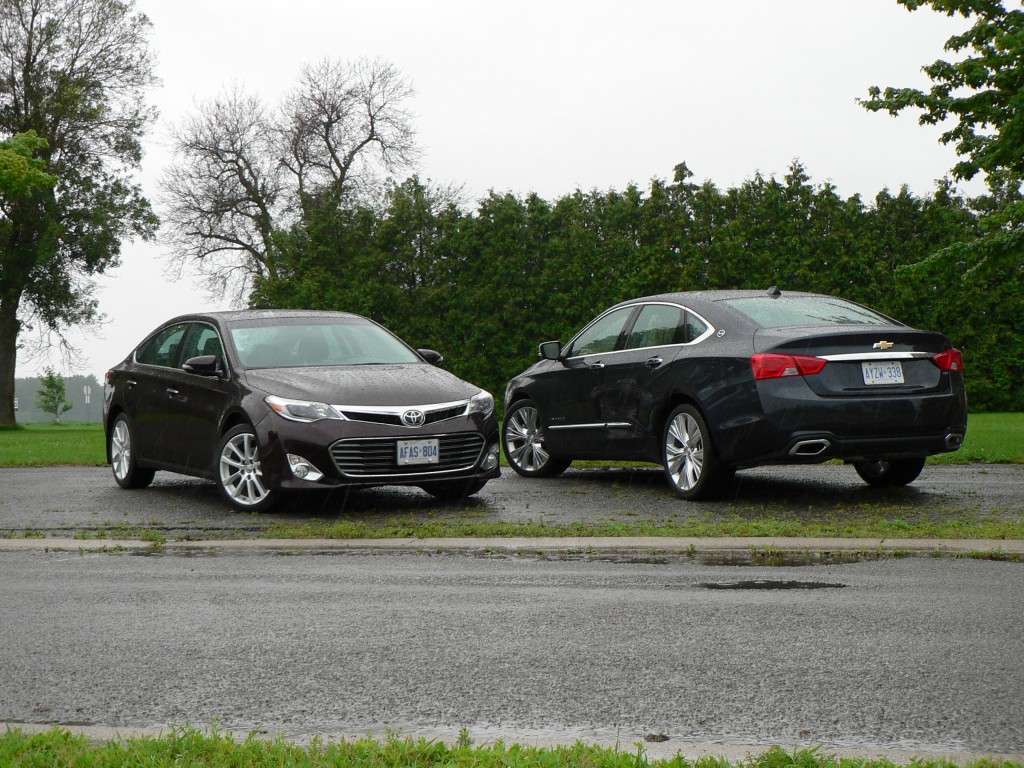
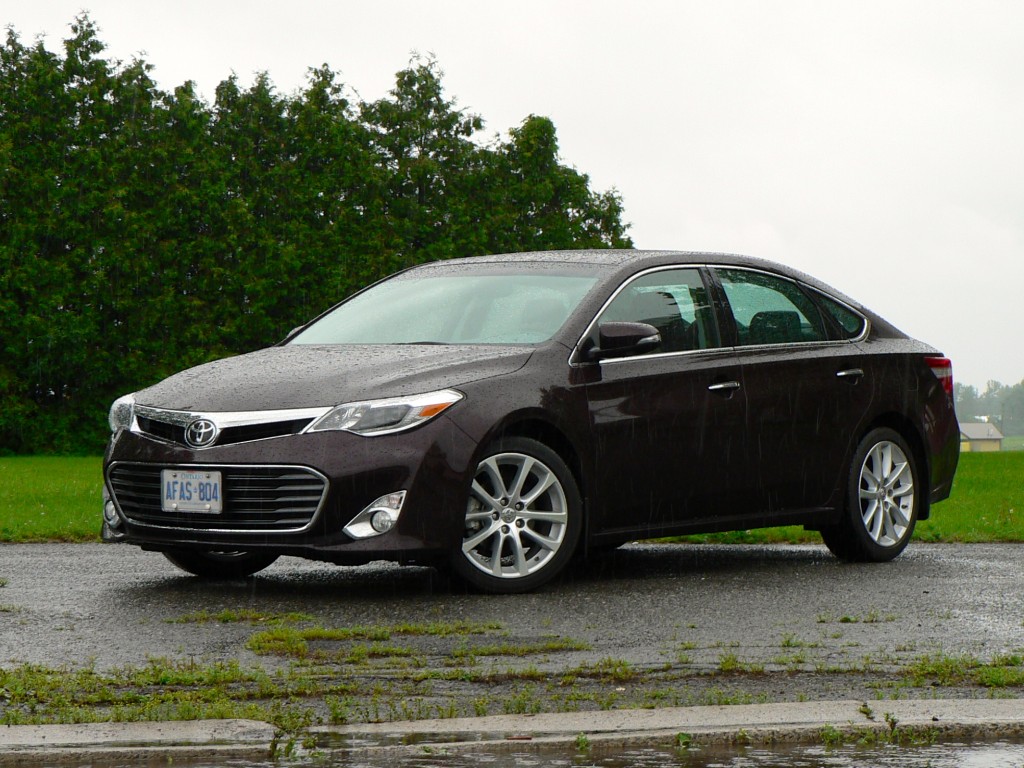
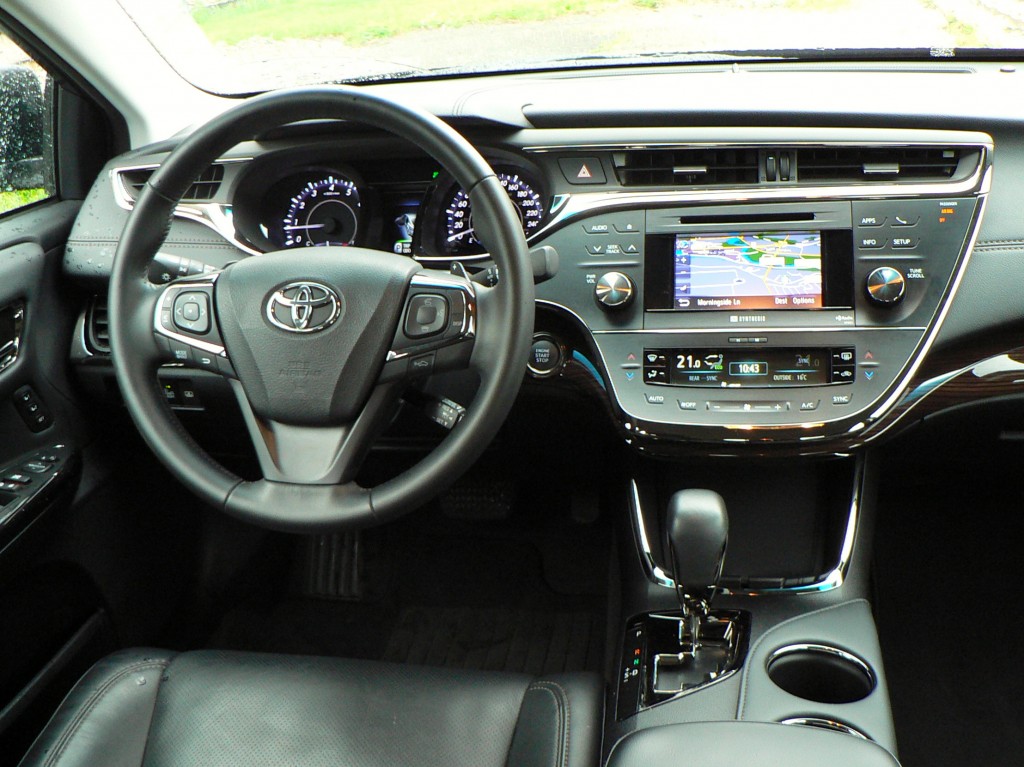
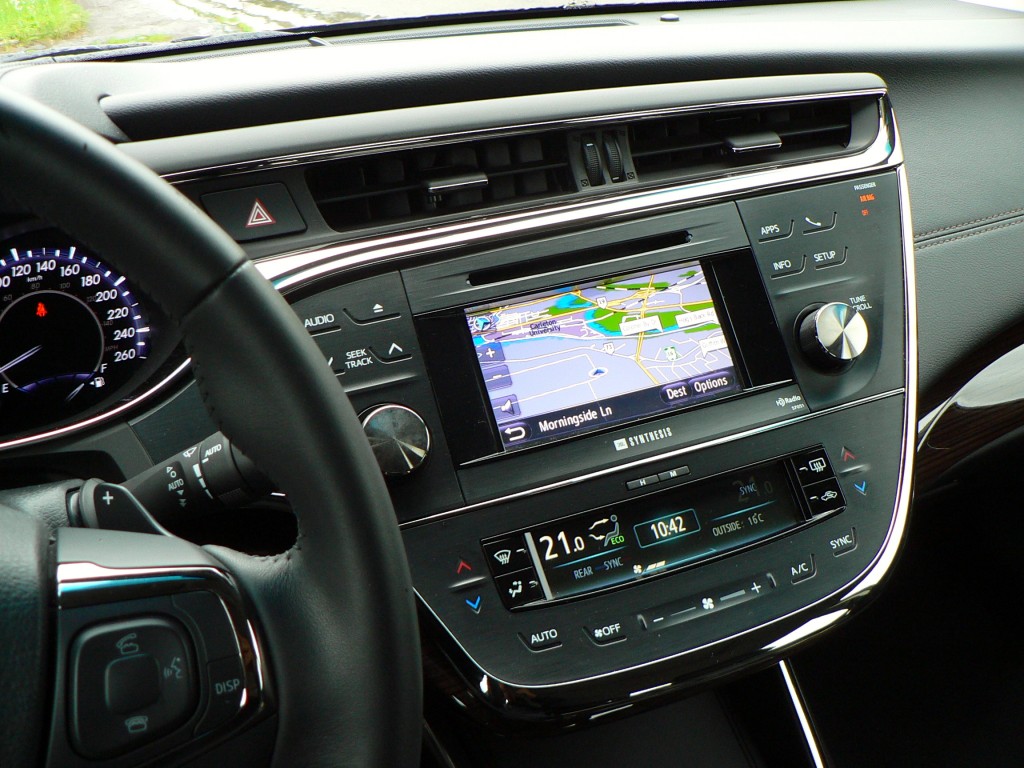
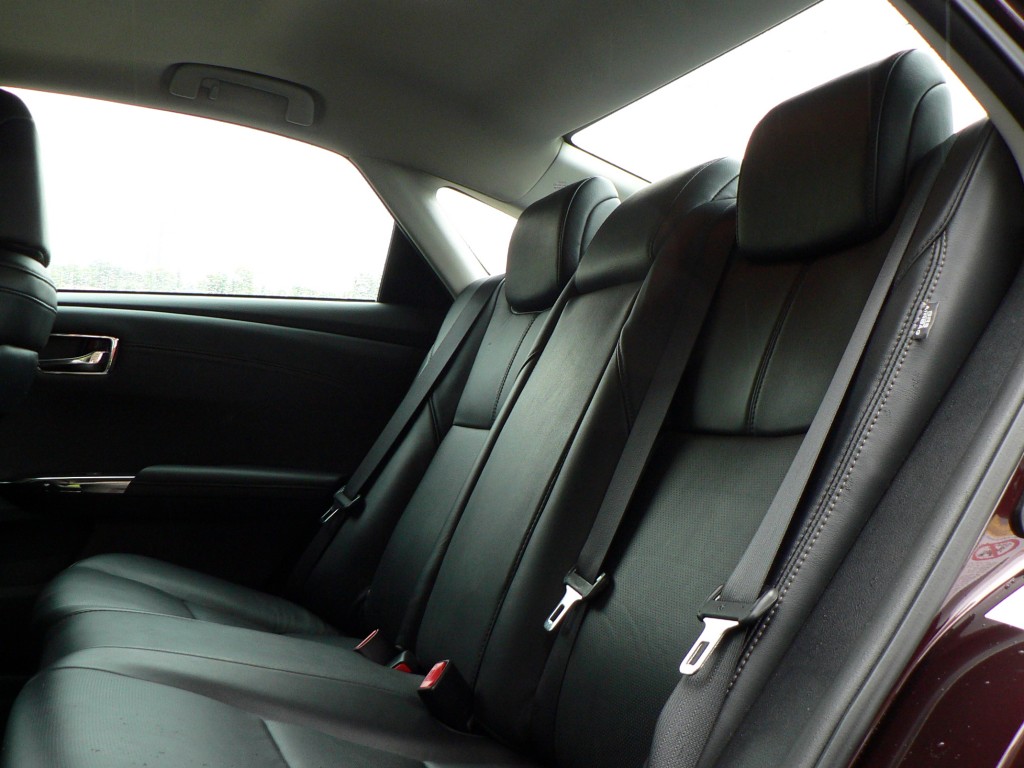
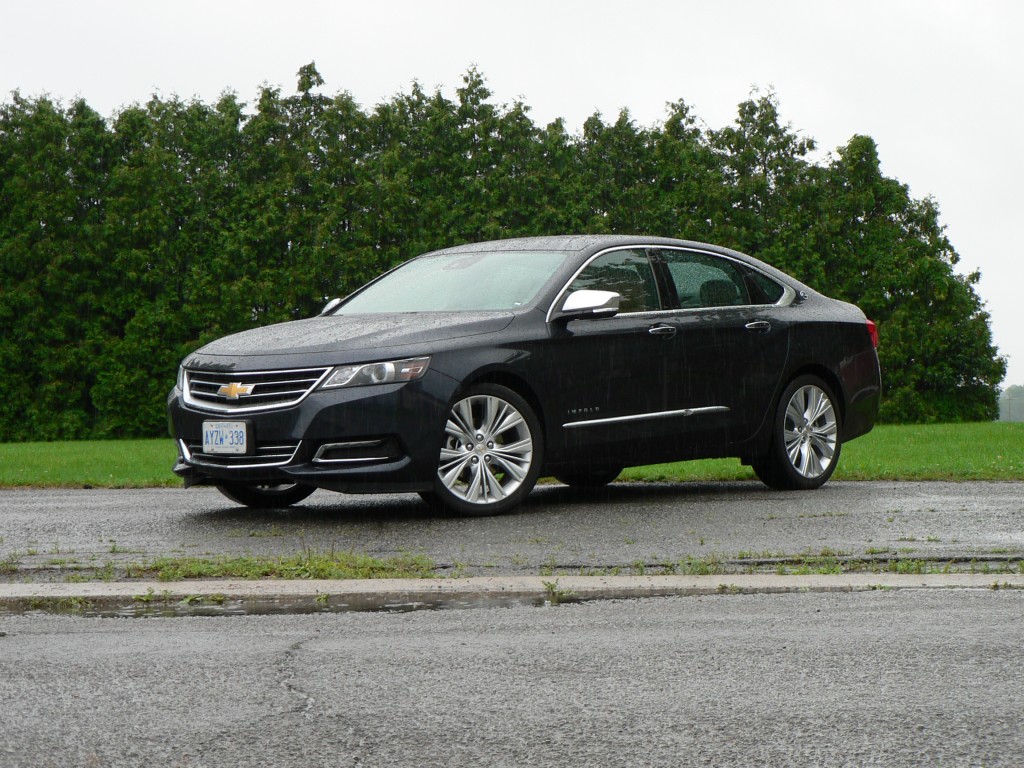
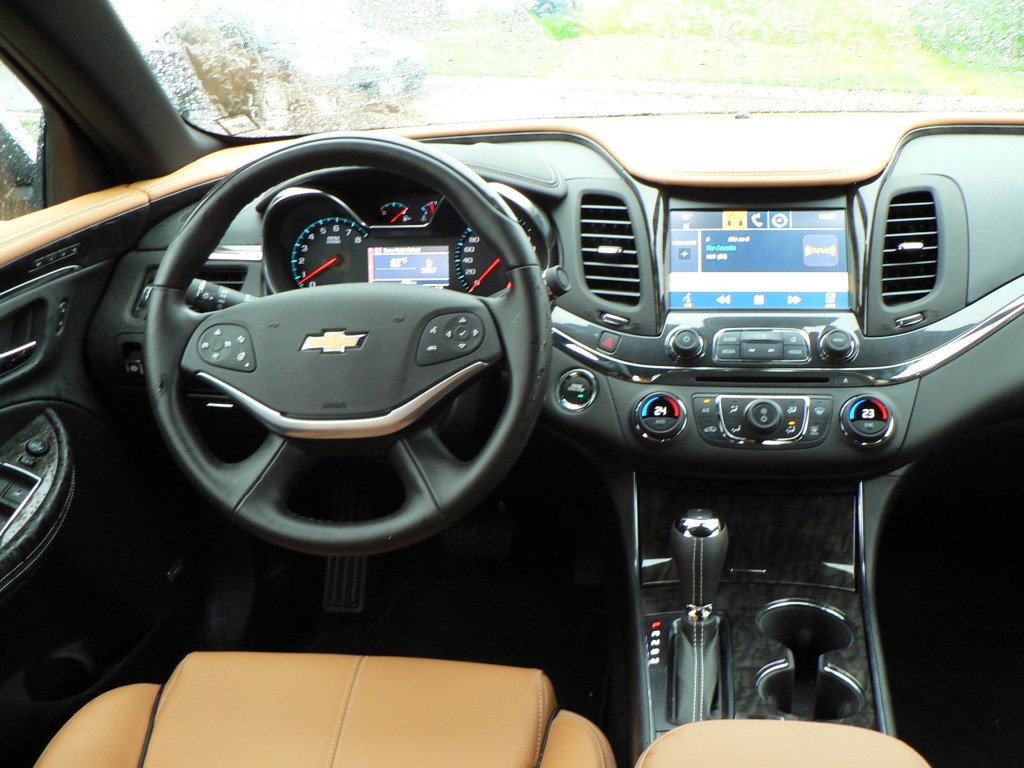
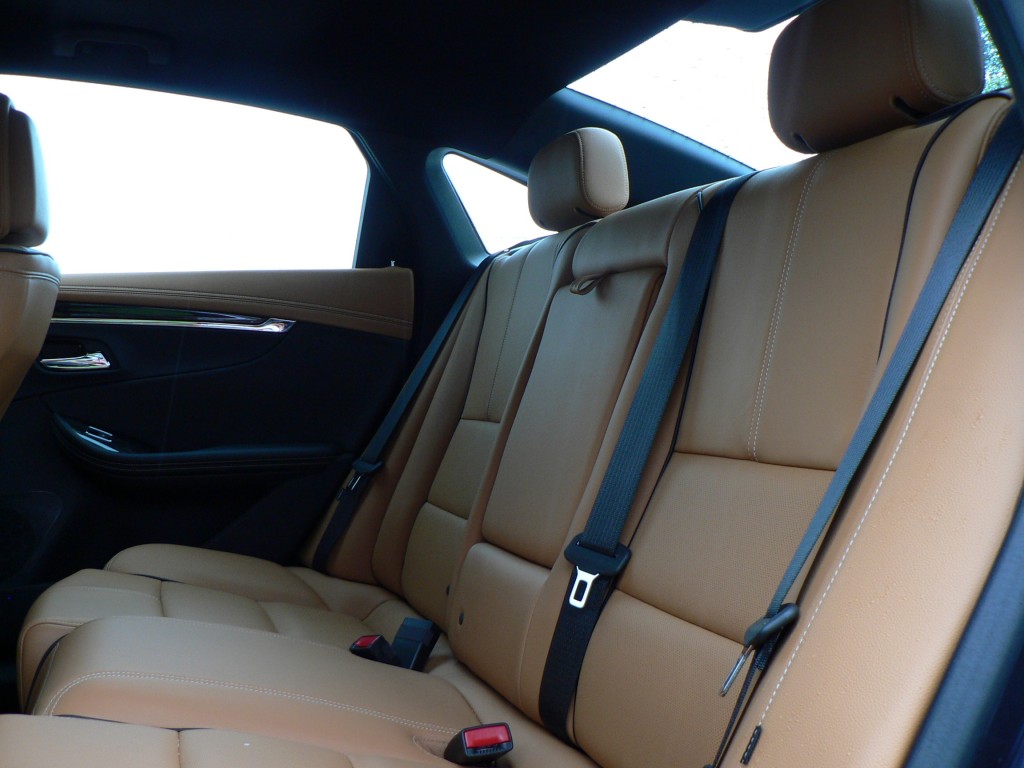
![[del.icio.us]](https://www.straight-six.com/wp-content/plugins/bookmarkify/delicious.png)
![[Digg]](https://www.straight-six.com/wp-content/plugins/bookmarkify/digg.png)
![[Facebook]](https://www.straight-six.com/wp-content/plugins/bookmarkify/facebook.png)
![[Google]](https://www.straight-six.com/wp-content/plugins/bookmarkify/google.png)
![[Reddit]](https://www.straight-six.com/wp-content/plugins/bookmarkify/reddit.png)
![[StumbleUpon]](https://www.straight-six.com/wp-content/plugins/bookmarkify/stumbleupon.png)
![[Twitter]](https://www.straight-six.com/wp-content/plugins/bookmarkify/twitter.png)
![[Email]](https://www.straight-six.com/wp-content/plugins/bookmarkify/email.png)